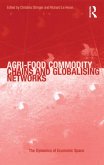Wars cannot be fought and sustained without food and this unique collection explores the impact of war on food production, allocation and consumption in Europe in the era of total war. The analysis ranges from military provisioning and systems of food rationing to civilians' survival strategies and the role of war in stimulating innovation and modernization.
Dieser Download kann aus rechtlichen Gründen nur mit Rechnungsadresse in A, B, BG, CY, CZ, D, DK, EW, E, FIN, F, GR, HR, H, IRL, I, LT, L, LR, M, NL, PL, P, R, S, SLO, SK ausgeliefert werden.
Hinweis: Dieser Artikel kann nur an eine deutsche Lieferadresse ausgeliefert werden.









